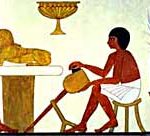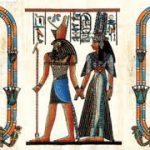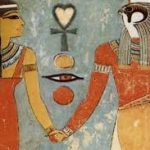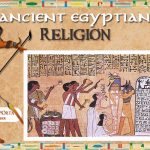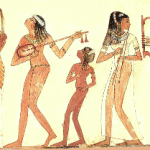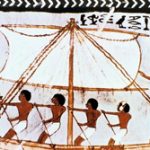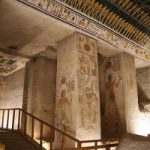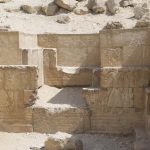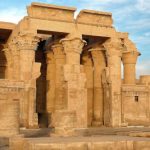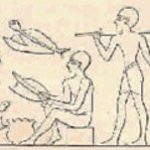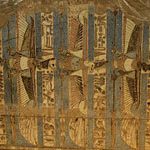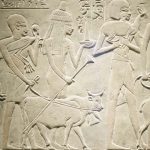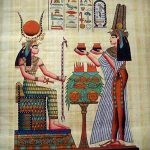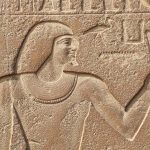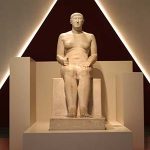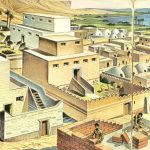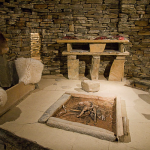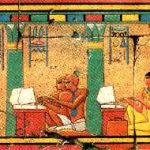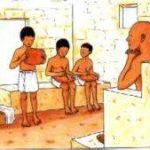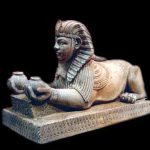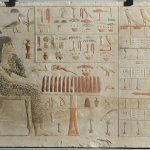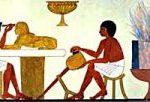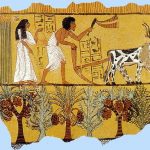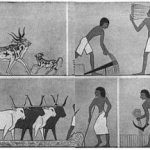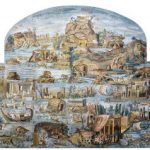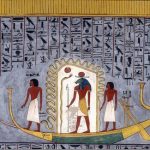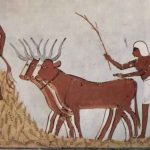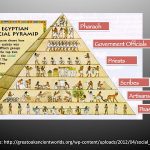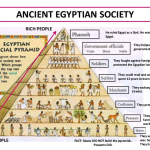Members of the king’s royal court enjoyed similar comforts to the king, although with little former responsibilities. Egypt’s nomarchs lived comfortably but their wealth depended on the wealth and importance of their district. Whether a nomarch lived in a modest home or a small palace hinged on the wealth of a region and the personal success of that nomarch.
Physicians And Scribes In Ancient Egypt
Ancient Egyptian doctors needed to be highly literate to read their elaborate medical texts. Hence, they started their training as scribes. Most diseases were believed to emanate from the gods or to teach a lesson or as punishment. Doctors thus needed to be aware of which evil spirit; ghost or god could be responsible for the illness.

The religious literature of the time included treatises surgery, setting broken bones, dentistry and treating illnesses. Given religious and secular life was not separated, doctors were typically priests until later when the profession became secularized. Women could practice medicine and female doctors were common.
Ancient Egyptian believed Thoth the god of knowledge selected their scribes and thus scribes were highly valued. Scribes were responsible for recording events ensuring they would become eternal Thoth and his consort Seshat were believed to keep the scribes’ words in the gods’ infinite libraries.
A scribe’s writing drew the attention of the gods themselves and thus made them immortal. Seshat, the Egyptian goddess of libraries and librarians, was thought to personally set each scribe’s work on her shelves. Most scribes were male, but there were female scribes.
While all priests qualified as scribes, not all scribes became priests. Priests needed to be able to read and write to perform their sacred duties, particularly mortuary rites.
The Ancient Egyptian Military
Until the beginning of the Egyptian Middle Kingdom’s 12th Dynasty, Egypt had no standing professional army. Prior to this development, the military comprised conscripted regional militias commanded by the nomarch usually for defensive purposes. These militias could be assigned to the king in times of need.

Amenemhat I (c. 1991-c.1962 BCE) a 12th Dynasty king reformed the military and created Egypt’s first standing army and placed it under his direct command. This act significantly undermined the prestige and power of the nomarchs.
From this point onwards, the military consisted of upper-class officers and lower class other ranks. The military offered an opportunity for social advancement, which was not available in other professions. Pharaohs such as Tuthmose III (1458-1425 BCE) and Ramesses II (1279-1213 BCE) conducted campaigns far outside Egypt’s borders so expanding the Egyptian empire.
As a rule, Egyptians avoided travelling to foreign states as they feared they would not be able to journey to the afterlife if they died there. This belief filtered through to Egypt’s soldiers on campaign and arrangements were made to repatriate the bodies of Egyptian dead to Egypt for burial. No evidence survives of women serving in the military.


